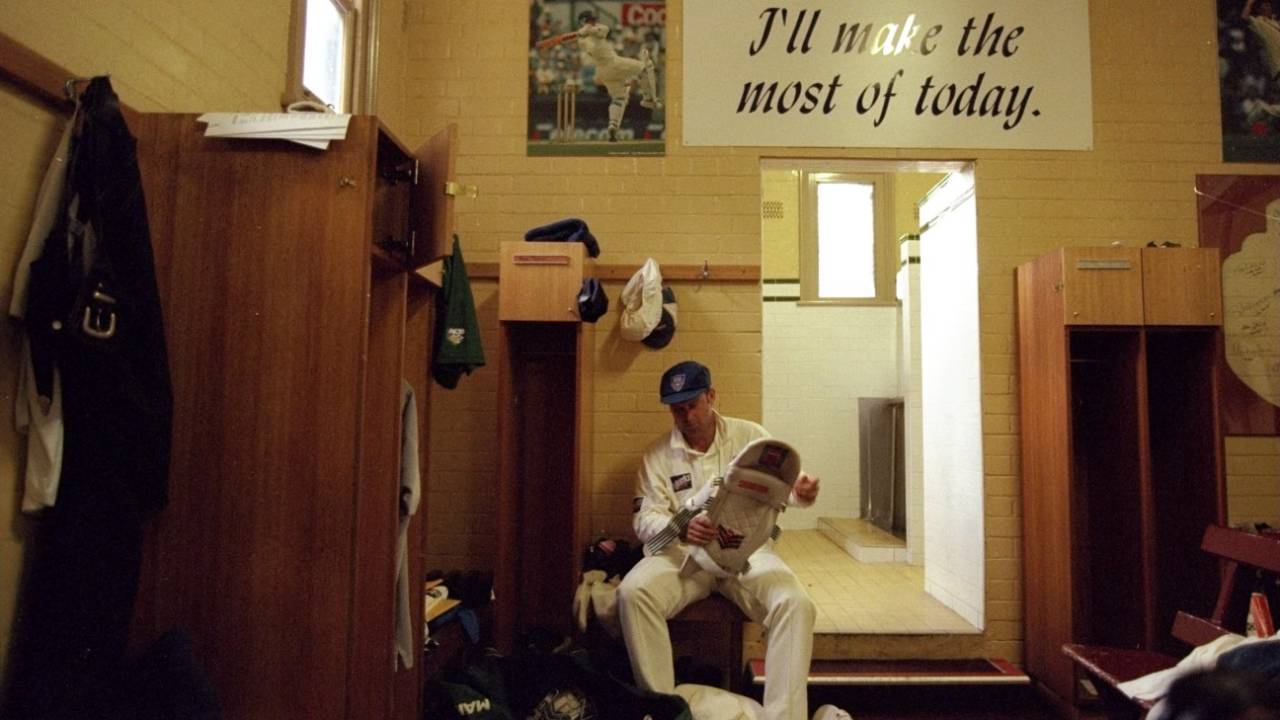Of the writing of cricket books there is, apparently, no end; but of the writing of high-quality fiction about professional cricket there has been almost no beginning. Until now.
Summertime and the living is hard for James McCall. His knee is first cousin to finished, his wife, Beth, has left him, and he is the stop-gap captain of an England team that must avoid defeat in the final Test if it is to retain the Ashes. Such might be a précis of Nathan Leamon's first novel, The Test. That, however, gives no sense of the depth of this brave and humane work, its layers of reference, or its authentic reflection of life inside a Test match dressing room.
Leamon knows the life he describes inside-out. Although not a Test cricketer, he has worked as England's analyst since 2009 and now leads research and innovation at the ECB while remaining in his analytical role with the white-ball side. However, to write an account of his life with the Test team using real people would be a betrayal of trust. Thus, the rather obvious paradox is that to give the reader an accurate idea of what it is like to be in a dressing room during a Test match, Leamon has had to make it up.
The result is a work of fiction possessing an authenticity that can only come from experience. The novel is as real as the sweat inside a batting glove or the hollow silence that settles on a dressing room after a defeat. Coaches and cricketers who have read the book testify to that.
Yet The Test succeeds partly because of what it does not try to do. There is no scorecard of the vital match, and nothing but the vaguest detail about individual achievements. The progress of the game is given in simple line scores, thus allowing the reader to understand the architecture of the contest without it becoming the kind of over-by-over chronicle characteristically produced by novelists who love cricket but can't write to save their skins. Cricket dominates The Test without overwhelming it. This daft game isn't quite the big thing in the book; it is, however, the means by which some of the characters understand the big things in their lives - or realise they have missed them altogether.
"God, I love this." These are McCall's words when he arrives at the crease for the first time in the crucial Test. Beset by another demon and tortured by the absence of Beth and their two children, he finds deep solace in the game to which he has devoted years of his life. The Australians are snarling - not everything in The Test is fictional - and the Ashes are at stake. One of the triumphs of the book is that McCall's character is so powerfully drawn that readers might eventually care more about him than they do about the result of the match.
The number of characters in the novel is quite small. Only five members of the England side are fleshed out in any detail and the one Australian who speaks off the field is Steve, the amiable captain. Many of the characters are damaged. Some are battered in body, others in spirit. Jabba, England's media manager, is both - well-read and sensitive, he is capable of wisdom but has been beaten by life. Instead of being clever, he very frequently settles for being merely smart. He has failed the test that, in a different guise, faces McCall.
However, if Jabba is the most tragic character in the novel, the most comic is unquestionably Tayls, an international cricketer who is no great loss to higher education. But the colleagues who mock this glorious idiot in the dressing room also revere him when he bats in a Test match and is revealed at his world-class best:
"This is his wheelhouse. He was born to play these situations. The greater the pressure, the more there is at stake, the more he stands out. Unhurried and unfazed, he seems to suck the tension out of these moments."
Leamon's other lives also feed into the novel. A very successful sports coach at both Tonbridge and Eton, he has drawn his schoolmasters here with sympathy and perception. Like Jim Stock, McCall's mentor and a former Gloucestershire professional, they seem to have won their test in a way that McCall has not yet managed.
Some reviews might highlight the novel's treatment of McCall's idyllic life at Cambridge and the early stages of his relationship with Beth. Others could examine the chapters in which the first-person narrative is replaced by meditations on coaching or Eastern philosophy. Each of these could be followed by one word, "discuss", although there is nothing teacherly about The Test. Other reviews again might consider Leamon's use of English literature: Stephen Spender, Louis MacNeice, Henry Newbolt, TS Eliot, and especially Alfred Tennyson, to name just a few poets, are all quoted in a manner that is apposite rather than forced. There are many ways of approaching this book. All are valid and all are rewarding.
Leamon says he finds writing addictive. This may not bode too well for England's chances in the World Cup but it is excellent news for the rest of us. For this freshman novelist has dug deep into fresh turf. He has taken a subject that most people thought too technical for fiction and treated it with the style of two characters in this book: Casey Thomas, the Lancashire wunderkind, and the no-bull professional excellence of Grub, Jim's best mate in the England team. The Test is, as it were, the real McCall.
The Test
By Nathan Leamon
Little Brown, 2018
£16.99, 320 pages
Paul Edwards is a freelance cricket writer. He has written for the Times, ESPNcricinfo, Wisden, Southport Visiter and other publications

